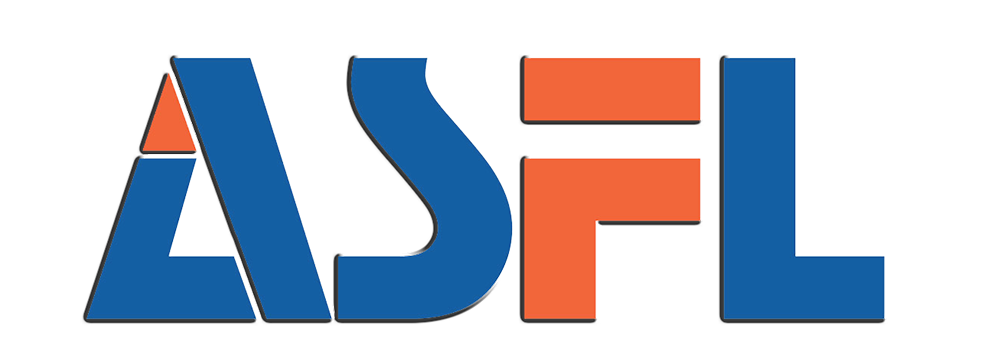Types of Liquid Filling Machines for Diverse Needs
Automatic Liquid Filling Systems
Automatic liquid filling systems are essential for streamlining production processes, especially in high-volume industries. These systems markedly improve efficiency by significantly enhancing throughput, ensuring consistent fill levels, and reducing human error. They are invaluable in industries like food and beverage, pharmaceuticals, and cosmetics, where precision and speed are crucial. For instance, according to industry statistics, the use of automatic liquid filling machines has increased by 15% annually due to their ability to handle large-scale operations efficiently. These machines form a key part of any well-optimized liquid filling line, ensuring that production keeps up with growing demand.
Bottle-Specific Filling Solutions
Filling machines tailored for specific bottle types are crucial for optimizing the filling process. Different bottle shapes and materials require varying filling mechanisms to enhance accuracy and minimize spillage. These machines offer significant benefits, such as improved filling precision and reduced waste. A case study in the cosmetics industry showed that using a liquid bottle filling machine designed specifically for uniquely shaped bottles led to a 30% decrease in fluid wastage and a 20% increase in production speed. Such specialized equipment demonstrates the substantial operational improvements achievable with bottle-specific solutions.
Piston vs. Gravity Filling Technologies
Piston and gravity filling technologies are distinct methodologies suited for different liquid consistencies. Piston filling machines employ a volumetric piston to draw and dispense product, which is ideal for high-viscosity liquids, offering precise control and uniform fills. Conversely, gravity filling technology leverages the natural force of gravity to dispense lighter, water-thin liquids, making it suitable for products with lower viscosity. Each mechanism is associated with particular performance metrics — for example, gravity fillers typically have a higher throughput rate for thin liquids, while piston fillers excel in handling viscous or chunky products efficiently. Selecting the appropriate system depends on the specific characteristics of the liquid being filled.
Integrated Filling and Capping Machine Options
Integrated filling and capping systems offer comprehensive solutions by combining two crucial stages of packaging into a single process. This integration leads to substantial reductions in labor costs and operational time. Additionally, these systems provide exceptional flexibility by easily accommodating various bottle sizes and types. Industry reports indicate that incorporating filling and capping machines within production lines can improve overall efficiency by up to 40%, due to reduced downtime and increased throughput. These systems not only enhance productivity but also maintain high standards of product quality.
Key Industries Served by Liquid Packaging Equipment
Food & Beverage Production Lines
Liquid filling machines play a crucial role in the food and beverage industry by ensuring products meet stringent health regulations. These machines offer precise filling, which is vital for maintaining product integrity and ensuring compliance with safety standards. For example, various products like sauces, juices, and dairy items rely on these machines to eliminate contamination risks while achieving consistent fills. The impact of this technology on quality assurance cannot be overstated—it allows for uniform product processing and greater consumer trust. According to market research, the global liquid packaging market is projected to grow significantly, driven by the increased demand for packaged beverages and food products, emphasizing the importance of efficient liquid filling lines.
Pharmaceutical and Chemical Manufacturing
In the pharmaceutical and chemical sectors, strict standards control liquid filling processes to prevent contamination and ensure precision. Advanced liquid filling technologies, like automatic liquid filling machines, are pivotal in these industries, offering accuracy and safety in handling sensitive chemicals and medicinal liquids. These machines must comply with regulations such as cGMP, which demands rigorous standards of cleanliness and precision. Compliance with such standards is not merely a recommendation but a necessity, backed by statistics showing enhanced safety outcomes in facilities utilizing advanced liquid filling systems. Leading manufacturers tailor equipment to meet these high standards, ensuring that their machinery not only meets but often exceeds regulatory requirements.
Cosmetic and Personal Care Applications
Liquid filling machines are also integral to the cosmetic and personal care industries, where precision in product formulation is critical. These machines support filling various product types, including lotions, shampoos, and perfumes, each presenting unique challenges due to differences in viscosity and packaging requirements. Industry experts observe a growing trend towards customized liquid filling solutions to address specific needs, such as those in the burgeoning personal care market. The adoption of integrated filling and capping machines has significantly improved operational efficiency, allowing companies to meet market demands swiftly while maintaining high standards of quality. This shift towards more sophisticated equipment is driven by consumer demands for perfection in every product batch.
Benefits of Modern Liquid Filling Technology
High-Speed Precision for Varied Viscosities
In the world of liquid packaging, modern liquid filling machines are a boon, offering unmatched precision for a variety of viscosities. They can efficiently handle everything from thin liquids like water to viscous substances like syrups, ensuring accuracy with each fill. Technological advancements such as servo motors and sensors play a crucial role in enhancing both speed and precision. These innovations enable machines to execute rapid fills without sacrificing accuracy, making them indispensable in high-speed applications. According to industry data, companies using these advanced machines report a significant increase in performance metrics, with some manufacturers achieving up to a 30% improvement in filling efficiency.
Customizable Liquid Filling Line Integration
The flexibility and customization options available with modern liquid filling systems are revolutionizing production lines. These systems are designed to cater to unique production needs and are adaptable to various space constraints, which optimizes workflows. Manufacturers today can tailor their liquid filling lines to specific requirements, whether that means integrating with existing systems or adjusting for new products. Case studies illustrate the success of these custom implementations, such as a cosmetics company that reduced bottling time by 25% after adopting a customized filling line. This adaptability not only boosts efficiency but also aligns perfectly with the specific demands of diverse industries.
Reduced Downtime with Easy Maintenance
Modern liquid filling technologies are engineered to minimize operational downtime through streamlined maintenance features. User-friendly interfaces and simplified maintenance protocols help ensure that machines stay operational with minimal interruptions. Regular maintenance is vital for prolonging machinery lifespan, and contemporary systems make this process straightforward, effectively reducing the likelihood of unplanned breakdowns. Companies that have adopted such maintenance schedules report up to a 40% decrease in downtime, highlighting the correlation between efficient maintenance strategies and machine reliability. These advancements ensure continuous operation, crucial for meeting production goals in today's fast-paced manufacturing environment.
Selecting a Liquid Filling Machine Manufacturer
Evaluating Production Volume Requirements
Determining production volume requirements is vital when selecting a liquid filling machine. Evaluating your business growth projections and market demand helps identify the necessary capacity and speed specifications. For example, companies increasing their market share may require machines that can accommodate high-speed operations without compromising efficiency. Aligning machine capabilities with production needs has helped businesses streamline operations and meet deadlines promptly.
Importance of Technical Support and Training
Ongoing technical support and training are crucial factors to consider when selecting a liquid filling machine manufacturer. Robust support services enhance machine productivity and boost user competence, ensuring smooth operations. According to customer satisfaction surveys, reliable support and training significantly impact operational success, with marked improvements in machine uptime and user proficiency, thus leading to better performance and decreased interruptions in the production process.
Compliance with Industry Safety Standards
Choosing a manufacturer that complies with industry safety standards and regulations is of paramount importance. Non-compliance can have serious consequences, affecting business operations and increasing liability risks. Manufacturers specializing in filling and capping machines, such as those for pharmaceuticals and chemicals, must adhere to common safety certifications to ensure operators' safety and the finished product's quality. Compliance not only mitigates risks but also assures stakeholders of the company's commitment to maintaining high safety standards.

 EN
EN
 AR
AR
 FR
FR
 DE
DE
 PT
PT
 RU
RU
 ES
ES
 TR
TR




